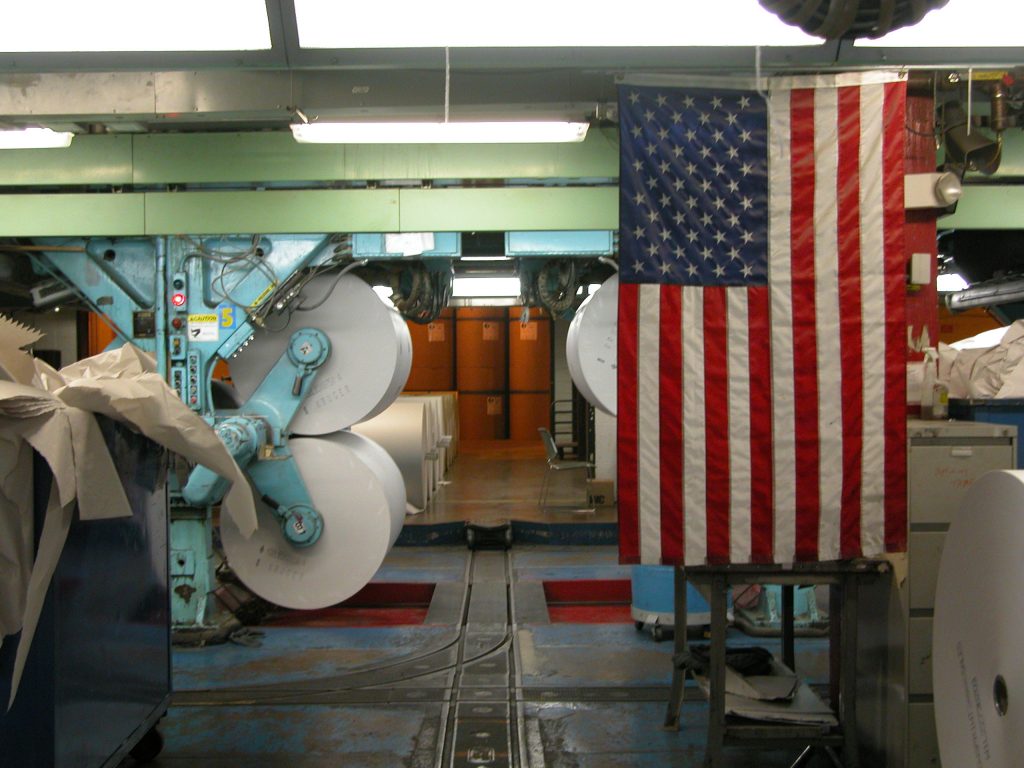 Summary judgments are procedural devices used when no genuine issue of material fact exist that should be litigated in a full trial. The burden of proving that there is no issue as to material facts is on the party who is seeking the summary judgment. Once the moving party establishes that no genuine issue of material fact exists, the burden then shifts to the opposing party to present evidence that indicates that there is in fact a dispute as to material facts. A recent lawsuit arising from Ascension Parish Louisiana discusses the standards used by courts to evaluate summary judgment motions.
Summary judgments are procedural devices used when no genuine issue of material fact exist that should be litigated in a full trial. The burden of proving that there is no issue as to material facts is on the party who is seeking the summary judgment. Once the moving party establishes that no genuine issue of material fact exists, the burden then shifts to the opposing party to present evidence that indicates that there is in fact a dispute as to material facts. A recent lawsuit arising from Ascension Parish Louisiana discusses the standards used by courts to evaluate summary judgment motions.
In 2006, First American Bank and Trust (“the Bank”) issued a loan to Commerce Centre, LLC, (“Commerce Centre”), with an interest rate of 7.75%. The loan was secured by the guarantees of ten individuals and companies. Soon after the original 2006 loan, the Bank and Commerce Centre negotiated a subsequent 2007 loan, which included a lower interest rate, and was secured by only six of the ten original guarantors.
The 2007 loan ultimately defaulted, and the Bank filed a lawsuit seeking repayment. The lower court granted the Bank’s motion for summary judgment. The remaining six individuals and companies that were secured guarantors on the loan, appealed the summary judgment asserting that material issues of fact as to the Bank engaging in fraud existed. The main contention of the opposing parties was that the Bank did not disclose that some of the original individuals and companies that were guarantors on the 2006 loan, were no longer guarantors on the 2007 loan.
 Louisiana Personal Injury Lawyer Blog
Louisiana Personal Injury Lawyer Blog


 If a person defaults on student loan payments, the loan issuer can obtain a order from the court, directing an employer to withhold money from the person’s earnings until the defaulted loan has been paid in full. A Bossier Parish School Board (“BPSB”) employee stopped paying her student loans. In order to recover the default amount, the student loan company hired a collection agency, Pioneer Credit Recovery Inc. (“Pioneer”) top. Pioneer sent BPSB an order from a court (making them a garnishee) requiring it to deduct the employee’s earnings to a sufficient amount to make payments on the loan. BPSP complied, taking money out of the employee’s paycheck monthly, until the default amount was completely satisfied.
If a person defaults on student loan payments, the loan issuer can obtain a order from the court, directing an employer to withhold money from the person’s earnings until the defaulted loan has been paid in full. A Bossier Parish School Board (“BPSB”) employee stopped paying her student loans. In order to recover the default amount, the student loan company hired a collection agency, Pioneer Credit Recovery Inc. (“Pioneer”) top. Pioneer sent BPSB an order from a court (making them a garnishee) requiring it to deduct the employee’s earnings to a sufficient amount to make payments on the loan. BPSP complied, taking money out of the employee’s paycheck monthly, until the default amount was completely satisfied. Antitrust laws protect competition and prevent monopolies. Ultimately, they are meant to protect consumers by ensuring healthy competition. Yet it is a common misconception that antitrust laws protect individual competitors in the marketplace; that each unique competitor is itself the competition that antitrust laws seek to protect. False. Antitrust laws are designed to protect competition – the integrity of the marketplace in which competition occurs – not individual competitors. See
Antitrust laws protect competition and prevent monopolies. Ultimately, they are meant to protect consumers by ensuring healthy competition. Yet it is a common misconception that antitrust laws protect individual competitors in the marketplace; that each unique competitor is itself the competition that antitrust laws seek to protect. False. Antitrust laws are designed to protect competition – the integrity of the marketplace in which competition occurs – not individual competitors. See A recent case arising out of Tensas Parish, Louisiana, highlights the importance of checking on leases that burden any land before purchase. “Legacy lawsuits” are claims that oil and gas operations caused contamination on a property and generally name any operators who worked at the property and could have contributed to the contamination. In this aspect, the case out of Tensas Parish is no different. This case involves a legacy lawsuit where landowners purchased a property in 2002, but the property was subject to mineral leases/servitudes as early as the 1940s by different oil and gas companies.
A recent case arising out of Tensas Parish, Louisiana, highlights the importance of checking on leases that burden any land before purchase. “Legacy lawsuits” are claims that oil and gas operations caused contamination on a property and generally name any operators who worked at the property and could have contributed to the contamination. In this aspect, the case out of Tensas Parish is no different. This case involves a legacy lawsuit where landowners purchased a property in 2002, but the property was subject to mineral leases/servitudes as early as the 1940s by different oil and gas companies. It costs money to file a lawsuit against a party who has wronged you, and it also costs money to defend yourself when another party brings a lawsuit against you. Imagine taking on those costs only to lose the case in the end — and then imagine having to also pay for the winner’s attorney’s fees.
It costs money to file a lawsuit against a party who has wronged you, and it also costs money to defend yourself when another party brings a lawsuit against you. Imagine taking on those costs only to lose the case in the end — and then imagine having to also pay for the winner’s attorney’s fees. Discrimination can come in many forms and if you are faced with a potential workplace discrimination issue it is important to take your concerns to a good lawyer because the contours of discrimination cases can be very complicated.
Discrimination can come in many forms and if you are faced with a potential workplace discrimination issue it is important to take your concerns to a good lawyer because the contours of discrimination cases can be very complicated. Renting a U-Haul truck can be a necessary burden when you are tasked with moving a lot of stuff from place to place. During the rental process you might be asked whether or not you want supplemental insurance policies. But who do you sue when an accident happens? In the following case out of New Orleans, Louisiana one plaintiff finds out who definitely cannot be sued when a U-Haul and Fedex truck collide.
Renting a U-Haul truck can be a necessary burden when you are tasked with moving a lot of stuff from place to place. During the rental process you might be asked whether or not you want supplemental insurance policies. But who do you sue when an accident happens? In the following case out of New Orleans, Louisiana one plaintiff finds out who definitely cannot be sued when a U-Haul and Fedex truck collide. When attempting to bring a lawsuit in court, timing is everything. If a potential claim is brought too late your day in court may never come. However, Louisiana courts of law are generous in extending the deadline to file a lawsuit in instances of fraud. In the following case out of Jefferson Parish Louisiana, a Plaintiff learned that the deadline to file a legal malpractice lawsuit can be relaxed when fraud is employed to hide negligent representation.
When attempting to bring a lawsuit in court, timing is everything. If a potential claim is brought too late your day in court may never come. However, Louisiana courts of law are generous in extending the deadline to file a lawsuit in instances of fraud. In the following case out of Jefferson Parish Louisiana, a Plaintiff learned that the deadline to file a legal malpractice lawsuit can be relaxed when fraud is employed to hide negligent representation. Imagine growing up with a genetic disorder and having to struggle with the difficulties that these disorders bring to people and their loved ones. Nobody chooses to have a genetic disorder, and if severe enough the disorder can cause major setbacks in a person’s life. Even with protections in place like genetic non-discrimination laws, many people throughout the country are denied health care coverage by their insurance providers because they have genetic disorders. Insurance companies do not want to provide coverage to these people because they are more of a “risk.” This can be very frustrating for the individual, especially because health care is so expensive today.
Imagine growing up with a genetic disorder and having to struggle with the difficulties that these disorders bring to people and their loved ones. Nobody chooses to have a genetic disorder, and if severe enough the disorder can cause major setbacks in a person’s life. Even with protections in place like genetic non-discrimination laws, many people throughout the country are denied health care coverage by their insurance providers because they have genetic disorders. Insurance companies do not want to provide coverage to these people because they are more of a “risk.” This can be very frustrating for the individual, especially because health care is so expensive today.  Courts are not perfect, and sometimes they do not always render the correct decision. When a court makes an error in their judgment it can be very frustrating for all of the parties involved. Error can be very costly especially when a major issue, like finding coverage for a victim of an automobile accident under an umbrella insurance policy, needs to be determined. Both the plaintiff and defendant wants the court to look in their favor, but it is also the responsibility of the court to make an error free and accurate decision that is fair and just to both sides.
Courts are not perfect, and sometimes they do not always render the correct decision. When a court makes an error in their judgment it can be very frustrating for all of the parties involved. Error can be very costly especially when a major issue, like finding coverage for a victim of an automobile accident under an umbrella insurance policy, needs to be determined. Both the plaintiff and defendant wants the court to look in their favor, but it is also the responsibility of the court to make an error free and accurate decision that is fair and just to both sides.